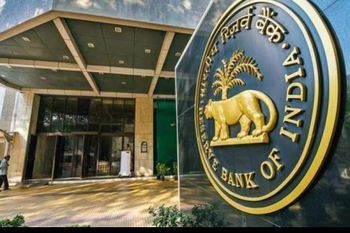#TradingUniversity
X FACTOR: RBI does not have second class employees. It has 17000 Class I, Class III & Class IV employees.
RBI’S NEW AUTO-DEBIT RULES
In this technology-driven world, most of the payments are made online whether it is your electricity bill or the monthly subscription payment of your favourite OTT platforms. Most of these payments are made through debit or credit cards by giving card details and validating them by providing the OTP every time the payment is made. So to further ease these payment services the auto debit system of recurring payments came in trend which enabled the merchants to deduct the billed amount directly from the customer's account whenever the new bill was generated. A huge increase in online frauds has been observed in the past few years, especially on third party platforms, where it has been seen those possibilities of payment related frauds are more. And lack of a solid cyber secured environment, the auto-debit system of recurring payments is getting exposed to higher risks. There is only one time registration for setting up the auto-debit account and later on the merchant can deduct money without any further authentication. This process is vulnerable to cyber threats and also the card holder doesn’t get a chance to review the payments. Hence, to overcome these critical issues, and as part of risk mitigation measures, India's apex central bank and regulatory body, Reserve Bank of India, took a major step to bolster the safety and security of card transactions by implementing new auto-debit rules which came into effect from 1st October 2021.
The key feature of these new auto-debit rules are as follows -
❖ The major change RBI has proposed is that customers who want a standing instruction in place for recurring payments will have to register for e-mandate at the merchant’s site for the first transaction, with a validity period and maximum amount. Also, mandate registration, modification, and deletion will all require additional factor authentication (AFA).
❖ The customers will receive a 24 hours prior notification of debit, which will have the details of the upcoming e-mandate charge, date, amount, merchant name, and reference number.
❖ For recurring payments above ₹5,000, banks are required to send a one-time password to customers.
❖ Customers can now even choose to opt out of a particular transaction or mandate via the link provided in the pre-debit notification.
So now what consumers have to do to go along with the new rules? It depends on the individual merchants how they are going to reorganize their payment systems for recurring payments in compliance with new norms. But definitely the customers need to register again for each service, if the standing instruction has not been migrated already, to permit merchants to charge customers’ cards for recurring payments. And, if a merchant has not complied with the new regulatory guideline, customers will have to make direct payments to the merchant to enjoy the services.
